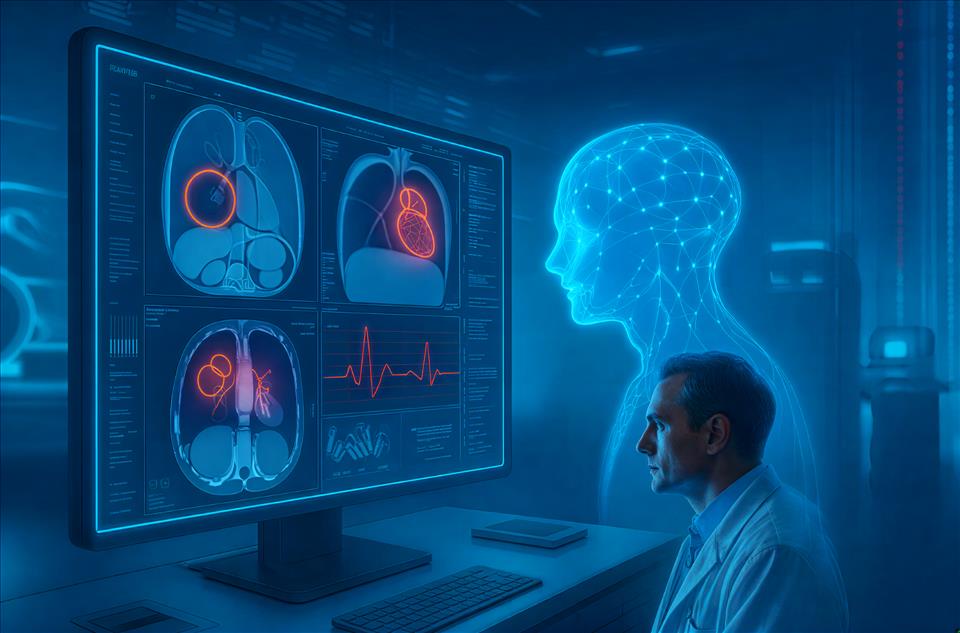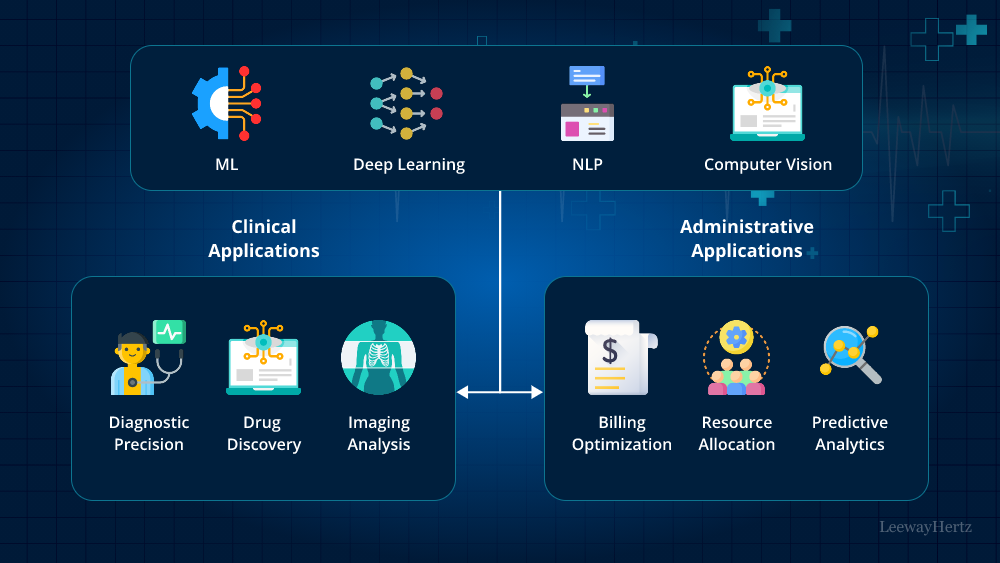Kuwait’s healthcare system has always stood as one of the most progressive in the Gulf region, with continuous investment in hospitals, medical research, and patient care. In recent years, the country has started witnessing a transformative shift driven by artificial intelligence (AI). From early disease detection to personalized treatment planning, AI-based diagnostic tools are not just futuristic concepts anymore they are being applied in hospitals today. This transformation is not only reshaping how doctors work but also bringing newfound hope to patients by improving accuracy, speed, and accessibility of medical services.
The Rise of AI in Medical Diagnostics
Artificial intelligence in healthcare is not a sudden change; it is the result of years of innovation, research, and testing. In Kuwait’s hospitals, AI technologies are now being integrated into medical imaging, pathology, cardiology, and even routine check-ups. Machine learning algorithms analyze massive sets of patient data to identify patterns that may not be immediately visible to the human eye. This allows healthcare professionals to detect illnesses at their earliest stages, increasing chances of successful treatment.
What makes Kuwait stand out is its willingness to embrace modern technologies while ensuring they are tailored to local healthcare needs. Hospitals are partnering with technology providers to ensure that AI tools are not just imported but adapted to Kuwait’s patient population, cultural context, and health challenges.
Faster and More Accurate Diagnoses
One of the biggest advantages of AI in diagnostics is its ability to deliver faster and more accurate results. For example, AI-assisted radiology systems can detect tumors, fractures, or internal abnormalities within minutes, reducing the waiting time for patients. In cardiology, algorithms can analyze ECG results instantly and flag potential risks before they escalate into life-threatening conditions.
Doctors are not being replaced by these technologies; instead, they are being empowered. AI serves as a supportive tool, allowing healthcare professionals to focus more on patient interaction and treatment rather than spending countless hours analyzing data manually. This blend of human expertise and machine intelligence is creating a healthier, more efficient medical ecosystem.

Personalized Treatment Plans
AI-based diagnostic systems in Kuwait are also playing a key role in developing personalized healthcare. Every patient is unique, and AI helps doctors understand these differences in depth. For example, genetic data combined with AI analysis can reveal why one patient responds well to a certain treatment while another does not. Hospitals can then tailor medications, therapies, and recovery strategies according to individual needs.
This personalization is particularly impactful in areas such as oncology, where cancer treatments often require highly specific and targeted approaches. AI can help predict how a tumor will respond to chemotherapy or radiation, thereby reducing unnecessary side effects and improving overall outcomes.
Integration of AI in Everyday Hospital Operations
AI in Kuwait’s hospitals is not limited to advanced disease detection. It is also being applied in routine tasks that make the healthcare system more efficient. Appointment scheduling, patient record management, and lab result tracking are now increasingly automated. This ensures that patients spend less time waiting and more time receiving quality care.
Moreover, AI-powered chatbots and digital assistants are being introduced to handle patient inquiries, provide medical reminders, and even guide people through simple health assessments before they meet a doctor. This reduces pressure on healthcare staff while making services more accessible to everyone, especially in remote areas.
Supporting Doctors and Nurses
The workload of doctors and nurses can be overwhelming, especially in busy hospital environments. AI technologies are helping reduce this burden by handling repetitive tasks and providing clinical decision support. For example, AI systems can alert doctors if a patient’s vital signs show early warning signs of deterioration. This real-time monitoring ensures that critical conditions are addressed immediately, saving lives.
For nurses, AI-driven tools such as automated infusion pumps and patient-monitoring systems ensure accuracy in medication delivery and reduce human error. These improvements bring peace of mind not only to healthcare professionals but also to families who trust hospitals with their loved ones’ care.
Enhancing Patient Trust and Satisfaction
A healthcare system is only as strong as the trust patients place in it. By adopting AI, Kuwait’s hospitals are sending a clear message: patient well-being and quality care are top priorities. Patients now feel reassured knowing that the most advanced technology is being used to detect diseases early and recommend the best treatments.
Additionally, AI-driven diagnostics reduce the uncertainty that often accompanies medical testing. When patients receive fast, reliable, and transparent results, they are more likely to follow through with treatment plans and maintain a positive outlook on their recovery.
Overcoming Challenges of Implementation
While the growth of AI in health diagnostics is promising, it does not come without challenges. Hospitals must ensure that medical staff are properly trained to work with AI systems. Data privacy and cybersecurity are also crucial, as sensitive patient information must be protected at all costs.
Another challenge lies in ensuring that AI complements human judgment rather than replacing it. Healthcare is deeply personal, and patients need the empathy, reassurance, and experience that only human doctors can provide. Kuwait’s hospitals are aware of this balance and are working to use AI as a partner in healthcare rather than a replacement.

Government and Institutional Support
The Kuwaiti government has been playing a pivotal role in promoting digital healthcare initiatives. Investments in smart hospitals, medical research, and AI partnerships are positioning the country as a leader in healthcare innovation across the Gulf. Universities and research centers are also collaborating with hospitals to explore new AI applications, ensuring that the technology continues to evolve in ways that directly benefit patients.
This top-down support provides hospitals with the resources and confidence they need to embrace AI while maintaining high ethical and professional standards.
The Human Touch in AI-Driven Care
Despite the growing presence of AI, one thing remains clear: healthcare will always need the human touch. Compassion, emotional understanding, and cultural sensitivity cannot be programmed into machines. What AI can do is free up time for doctors and nurses so they can spend more meaningful moments with patients.
This balance between cutting-edge technology and genuine human care is what makes Kuwait’s healthcare transformation unique. It shows that progress in medicine does not mean losing personal connections but enhancing them.
Looking Ahead: The Future of AI in Kuwait’s Healthcare
The journey of AI-based health diagnostics in Kuwait has only just begun. In the coming years, we can expect to see even more advanced systems that integrate robotics, wearable devices, and real-time health tracking. Imagine a future where patients in Kuwait can monitor their health continuously with AI-powered apps that instantly connect with hospitals for emergency alerts.
Telemedicine combined with AI diagnostics will also make healthcare more inclusive, ensuring that people in rural or underserved areas receive the same quality of care as those in major cities. This vision of universal, technology-driven healthcare is becoming more achievable each year.
Conclusion
The growth of AI-based health diagnostics in Kuwait’s hospitals is not just a technological achievement; it is a testament to the country’s commitment to providing world-class healthcare to its people. By embracing innovation while maintaining compassion and trust, Kuwait is setting an example for how nations can use AI to improve lives.
For patients, this means earlier diagnoses, better treatments, and a smoother healthcare journey. For doctors and nurses, it means support, efficiency, and stronger connections with those they serve. And for the healthcare system as a whole, it means moving towards a brighter, smarter, and healthier future.
Also Read- Kuwait’s Film Industry Embraces VR and Special Effects



